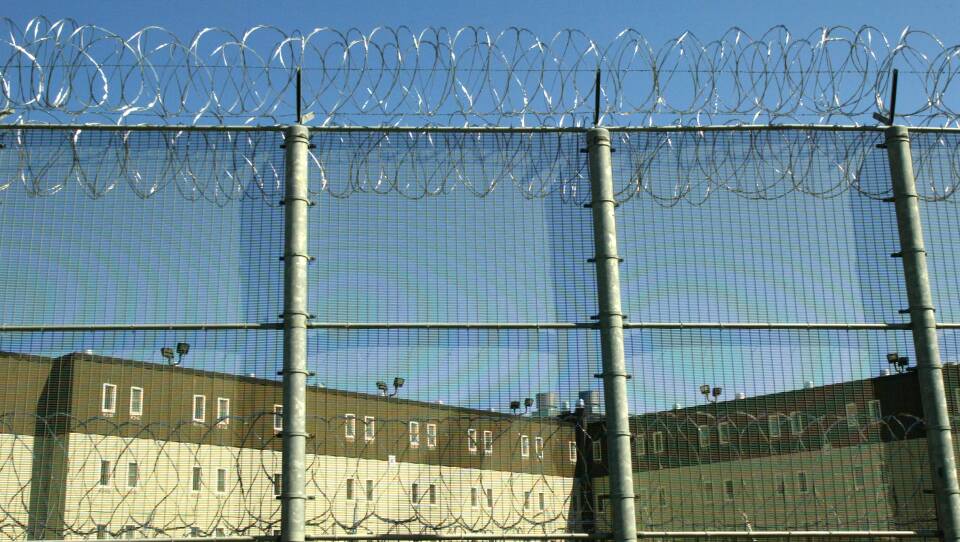Five years after Massachusetts passed sweeping criminal justice reform legislation, a new report released Wednesday shows key improvements in the state’s carceral system — along with widening racial disparities.
The report, released by the nonprofit Massachusetts Institute for a New Commonwealth, or MassINC, and Boston Indicators, shows the state’s incarceration rate is the lowest in the country — a rate that was nearly halved in the last decade.
But that fall is partly driven by an especially significant drop in the white incarcerated population. The rate of incarceration for white Massachusetts residents fell 40% between 2017 and 2021, compared to 32% for Latinos and 21% for Black residents. Black people are now more than seven times more likely than whites to be incarcerated in Massachusetts, data shows. And the rate of incarceration for Latinos has been rising since 2020.
Ben Forman, research director of MassINC, says findings show that more change is needed, especially since the pandemic challenged reform efforts across the country.
“We've got to be putting more resources into prevention, and support rehabilitation to try and reduce crime,” Forman told GBH News. “Not go back to the old ways of just locking people up and letting them back into the community years later in worse shape than they entered.”
In April of 2018, then-Gov. Charlie Baker signed landmark legislation to reform the criminal justice system — despite his own “serious concerns” that some areas went too far. The overhaul aimed to tackle recidivism by increasing programming behind bars, reforming the bail system, repealing some mandatory minimums, providing new diversion programs and improving data collection. The legislation also created a pathway for certain aging or terminally ill prisoners to be released on parole.
Since then, researchers say the state’s incarceration rate has dropped at a higher rate than other states while investments in programming, reentry support and treatment have increased. This “recipe,” they say, has led to safer communities.
Violent crime in Massachusetts fell steadily between 2012 and 2021, with a slight bump in 2022, the report shows. Some cities, however, showed higher rates of increase in 2022 — more than 20% — including Cambridge, Lowell, Lynn and Quincy.
But data also points to racial disparities that persist across many areas of the justice system, including who gets charged with crimes, who is behind bars, and who is released on medical parole.
The number of white people who were criminally charged dropped by 26% between 2019 and 2023; the number of Black people charged fell by 12%, while the number of Latinos charged dropped by just 1%.
These disparities were widest in cases of motor vehicle crimes.
Arnie Stewart, deputy chief counsel for the Committee for Public Counsel Services, says the numbers reflect the problem of over-policing in communities of color.
“That absolutely has serious racial issues in terms of just who is stopped,” she said.
Stewart says public defenders have seen improvements in certain areas of the system since 2018, including the reduction or repeal of some mandatory minimum sentences and better communication with probation services. However, she says there is much more to do.
“When I talk to the actual practitioners, they have been very frustrated by the promise of the [2018] Criminal Justice Reform Act,” she said. “Because they see some change, but they don't see enough meaningful change.”
The report also showed racial disparities in people receiving medical parole. About 11% of some 580 people who applied for medical parole between fiscal year 2018 and 2022 were granted release, the report said. About 13% of white petitioners received medical parole, compared to 7% of petitioners who are people of color.
Carol Rose, executive director of the American Civil Liberties Union of Massachusetts, says the report substantiates what advocates have long said.
“When we invest in people over punishment, we help make communities safer,” she said.
But she, too, says the road ahead is still long.
“Crucially, this report shows widening racial disparities in who is arrested and incarcerated,” she said. “If we are serious about eliminating racial inequities in our criminal legal system, Massachusetts must increase data collection and transparency at every stage of the criminal legal system and continue to enact smart, evidence-based sentencing and carceral system reforms.”
Researchers offered several recommendations moving forward including improving data collection. The 2018 reform law mandated improvements that never took place, authors say.
Final recommendations also state that Massachsetts should improve treatment options, strengthen investments in re-entry services and take a new look at the state’s prison facilities plan, considering the dramatic drop in population over the last decade. One question, authors said, is whether the state should continue to operate its maximum security prison, the Souza-Baranowski Correctional Center, at all.
“Evidence throughout the US establishes that these facilities breed hopelessness and extreme behavior by design,” the report said. “To maintain control under these conditions, prisons often resort to the use of long-term isolation, which has severe consequences on both the physical and mental health of prisoners.”








